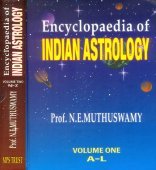Conceivable: 1 definition
Introduction:
Conceivable means something in Hinduism, Sanskrit. If you want to know the exact meaning, history, etymology or English translation of this term then check out the descriptions on this page. Add your comment or reference to a book if you want to contribute to this summary article.
In Hinduism
Yoga (school of philosophy)
Source: ORA: Amanaska (king of all yogas): A Critical Edition and Annotated Translation by Jason Birch(That which is) Conceivable is denoted by the Sanskrit term Cintya, according to the Sarvajñānottara verse 20.34-39.—Accordingly, while discussing the culmination of detachment (for the process of attaining the no-mind state): “[...] Having established his state in that which is free of all states, he makes his state supportless. Having made the mind no-mind, he thinks of nothing whatsoever. He should meditate on the self [as] neither conceivable (cintya) nor inconceivable and [as] both. He knows the self to be free from all partialities. [...]”.

Yoga is originally considered a branch of Hindu philosophy (astika), but both ancient and modern Yoga combine the physical, mental and spiritual. Yoga teaches various physical techniques also known as āsanas (postures), used for various purposes (eg., meditation, contemplation, relaxation).
See also (Relevant definitions)
Query error!
Full-text (+27): Cintya, Acintya, Jnatavya, Manogamya, Atindriyagrahya, Durvicintya, Adhigamya, Buddhigrahya, Parijneya, Sucintya, Durvijneya, Asambhavaniya, Gyatavya, Cintyadyota, Paviyam, Mantavya, Vibhavaniya, Alocaka, Patiyaka, Sugam.
Relevant text
Search found 108 books and stories containing Conceivable; (plurals include: Conceivables). You can also click to the full overview containing English textual excerpts. Below are direct links for the most relevant articles:
Tattvasangraha [with commentary] (by Ganganatha Jha)
Verse 3645 < [Chapter 26 - Examination of the ‘Person of Super-normal Vision’]
Verse 3229 < [Chapter 26 - Examination of the ‘Person of Super-normal Vision’]
Verse 388 < [Chapter 8 - Examination of the Doctrine of the Permanence of Things]
Bhagavati-sutra (Viyaha-pannatti) (by K. C. Lalwani)
Part 5 - The sun and sunshine < [Chapter 8]
Bhakti-rasamrta-sindhu (by Śrīla Rūpa Gosvāmī)
Verse 2.5.92 < [Part 5 - Permanent Ecstatic Mood (sthāyī-bhāva)]
Prasthanatrayi Swaminarayan Bhashyam (Study) (by Sadhu Gyanananddas)
4.3.2. Parabrahman’s Innermost Will < [Chapter 2 - Analysis on the Basis Of Epistemology]
4.4a. Grace to Pramāṇas: The Divine Birth on Earth < [Chapter 2 - Analysis on the Basis Of Epistemology]
The Kumbakonam Fire < [October – December, 2004]
Reviewers as Matchmakers < [October – December, 2007]
Deification of Nationalisation < [July 1965]
Chaitanya Bhagavata (by Bhumipati Dāsa)
Verse 2.10.138 < [Chapter 10 - Conclusion of the Lord’s Mahā-prakāśa Pastimes]
Verse 2.13.263 < [Chapter 13 - The Deliverance of Jagāi and Mādhāi]
Related products
